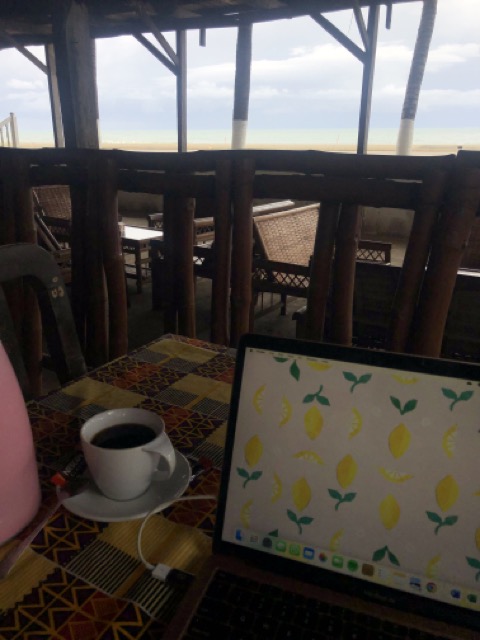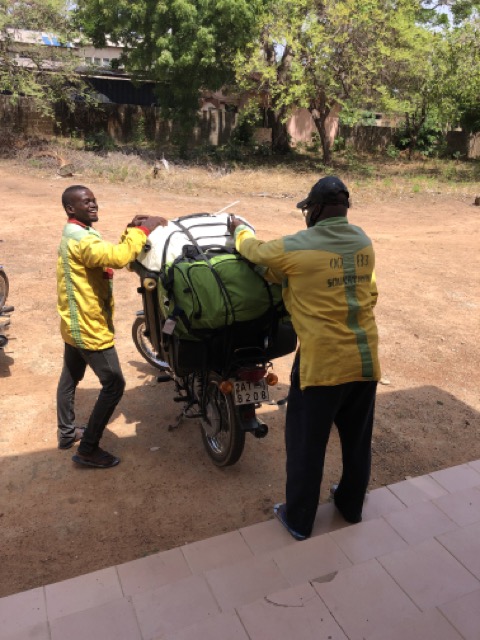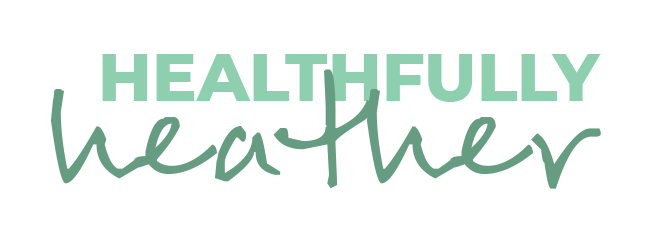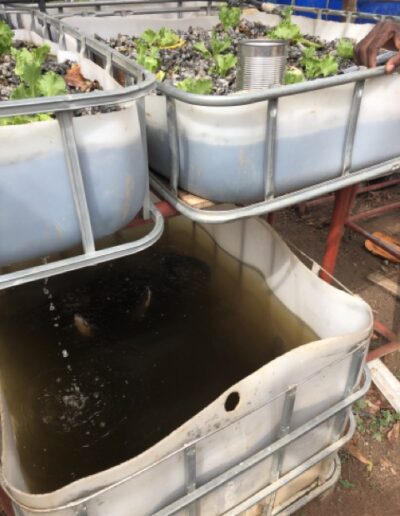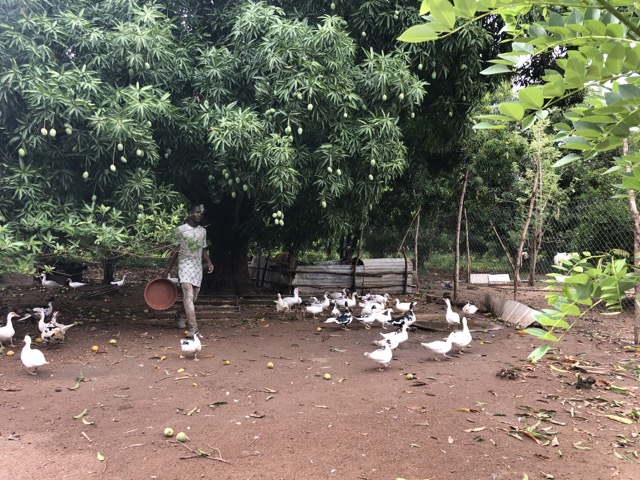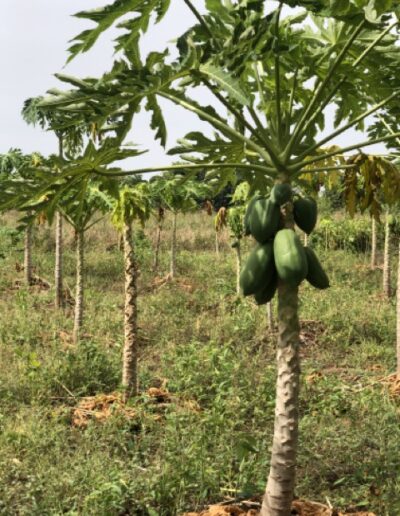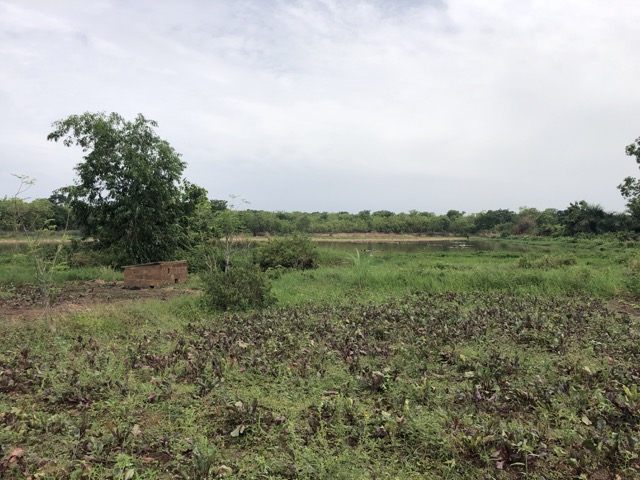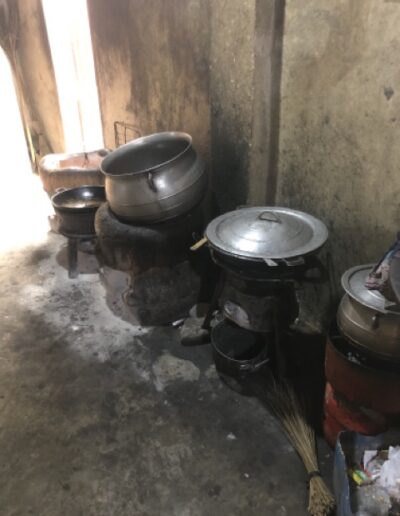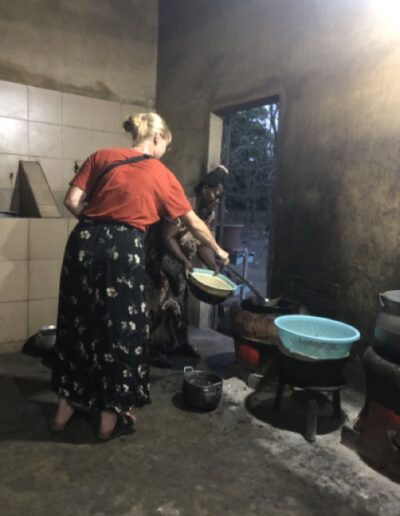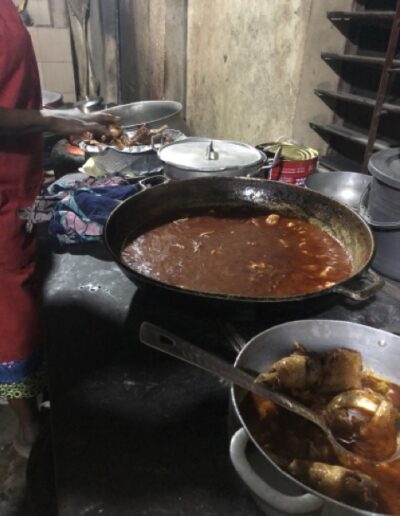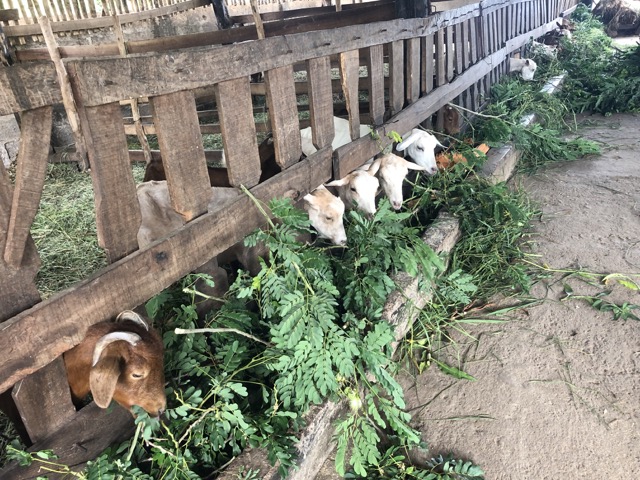
Week 10 – Projects from the Hubi & Vinciane Foundation
At the beginning of our stay in Benin we were shown our internship schedule. The last week, i.e. this week, had not yet been filled in and we were given the freedom to add something ourselves. We then chose to spend this week visiting some of the many other projects of the Hubi & Vinciane foundation.
Entrepreneurial incubation centre
Our week started with a visit to ‘the centre de incubation’. This centre serves as a kind of meeting room and office for young entrepreneurs who do not yet have the means and money to make their projects a reality. Other projects are being built on the same site. There will also be a large goat shed, basins with fish and a large vegetable garden. The center itself has only been open for one month and the opening of the other projects should take place in about three months. Since the centre was very close by to our house at the hospital in Boko, and since the temperature was still quite ‘cool’, we decided to go by foot. Our regular zem driver (motorbike taxi) just happened to be at the entrance of the hospital. He couldn’t bear to see us go on foot, so he overtook us by motorbike and insisted on dropping us off for free, how sweet! We were looking forward to finally getting some exercise – we have both lost quite a lot of muscle here as we mainly have to sit a lot and since it is just too hot here to really exercise. But look, we managed to avoid some sweaty clothes again.
Sokounon Farm
Later that week we visited the large, green ‘Ferme de Sokounon’. This farm was located a bit outside of Parakou and is also supported by the Fondation Hubi & Vinciane. It is a farm where animals as well as fruit and vegetables are grown. In terms of animals, you could mainly find goats, rabbits, ducks, geese, and guinea fowl. The abundance of fruit and vegetables consisted of bananas, papaya, corn, cucumber, tomatoes, onions, etc. The farm is run by five priests and many extra employees. It was impressive to see how green it was, as soon as you step outside the farm, the environment is very dry. By using the nearby lake, the farm can provide almost enough water. Due to problems with the pump, it is unfortunately insufficient to water all plants optimally. The work they do there is very nice. In this way, some fresh vegetables can be provided in Parakou. During the current dry season it is too dry to grow local fresh vegetables. Real fresh products must therefore be imported and are often expensive.
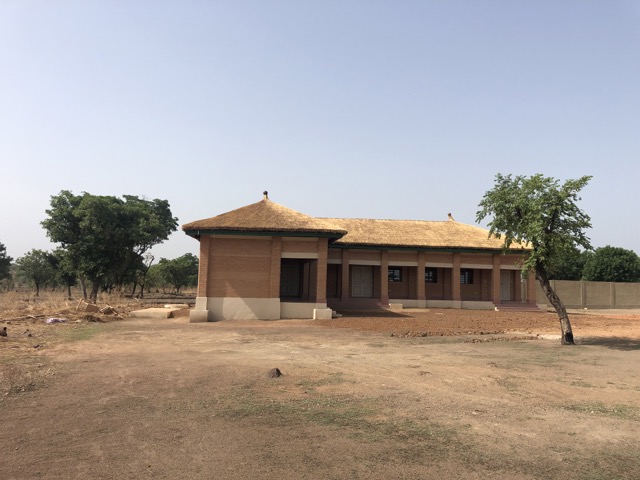
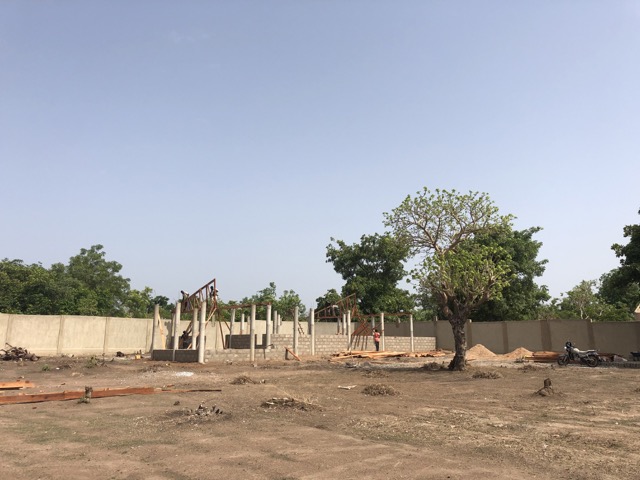
Foundation evaluation
Our very last days at the foundation consisted of evaluating the foundation and handing out the posters we developed to the midwives in the ‘centre de santé’ and in the hospital. Our internship mentor here in Parakou had asked us to write a report about what did during our time here and what we learned, as well as about the good and weak points of the foundation itself. Some working points that we presented at the time were that there were insufficient sources of protein and vegetables in the meals that we prepared with the community workers in the various villages. The meals consisted almost exclusively of a carbohydrate source with a small amount of protein (usually in the form of ground, dried fish) and quite a bit of oil. The amount of vegetables can be compared to how much mint is present in a quinoa salad, so not much. We also noticed the lack of vegetables outside the villages, for example in the canteen of the hospital, vegetables were secondary. When we made this comment, we were told that the foundation is in the process of increasing these amounts but that such a process takes a long time. Adjusting a habit is a process of years and to transfer this awareness to the population, one should approach this step by step.
As a final point of work, we also reported that cooperation with the midwives for pre- and post-natal consultations in and around Parakou would be a great help to them. During our internship we noticed that these women often shared no, insufficient, or incorrect information with the women. For example, there are information bundles from UNICEF that are used. Unfortunately, the information accompanying the images is often misinterpreted. Regularly, no nutritional advice was given, although this is important. Fortunately, there is our poster that we have distributed in the hospital and in a number of health centres. This poster was developed by us on behalf of the foundation and was about nutrition for the mother during pregnancy. The foundation’s plan is to have future Nutrition and Dietetics trainees print the food for babies up to 6 months old on a different poster next year and to expand this series to older children in the coming years.
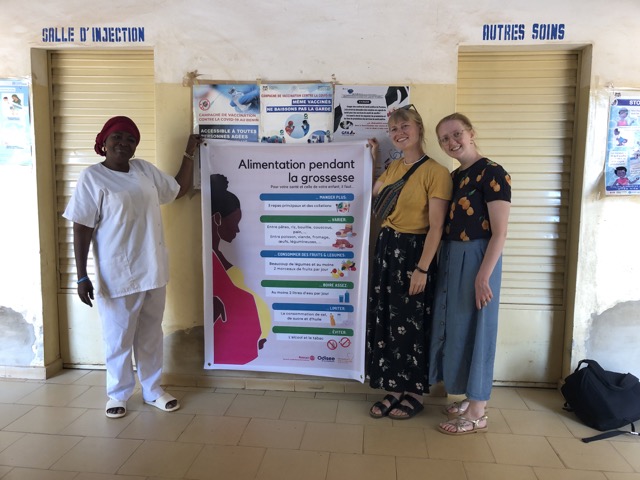
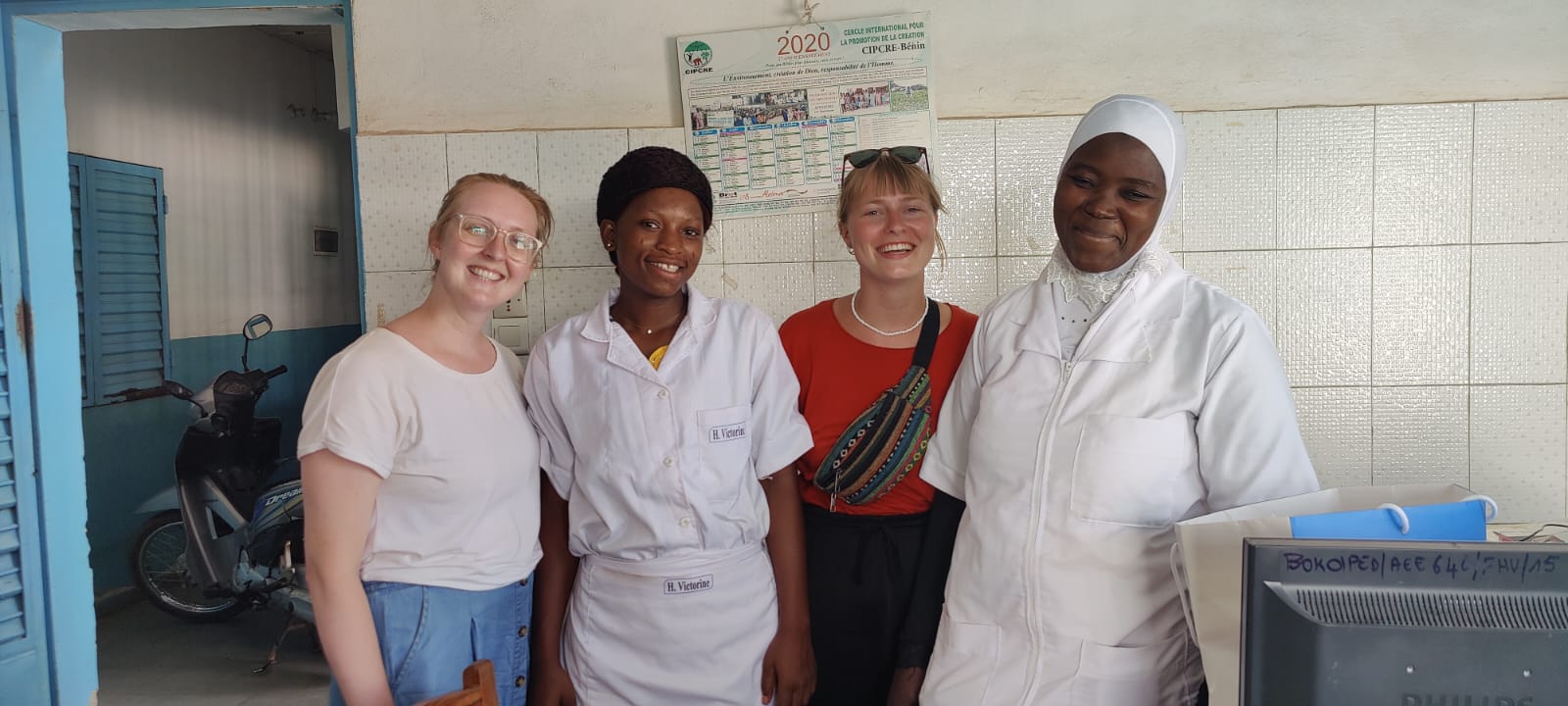
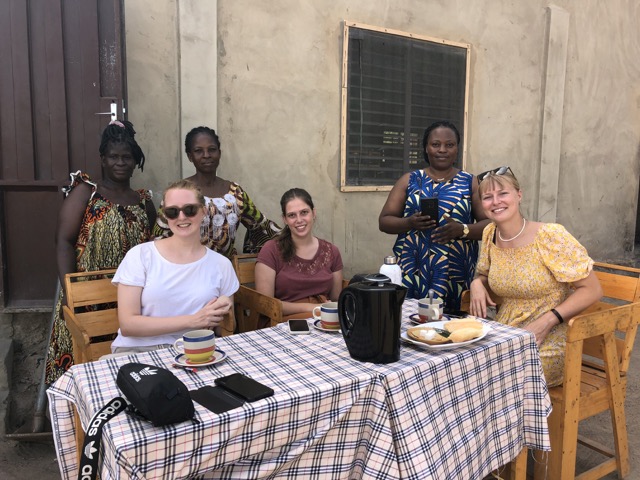
The end
There you go, this is our very last blog about our internship here in Benin. What an experience! We have had both very sad and very nice experiences that we will not soon forget. Benin is a beautiful country with a beautiful flora and fauna, but unfortunately poverty and corruption are very strong. Who knows, one day, maybe we will come back in and then we hope to see an improvement here.
